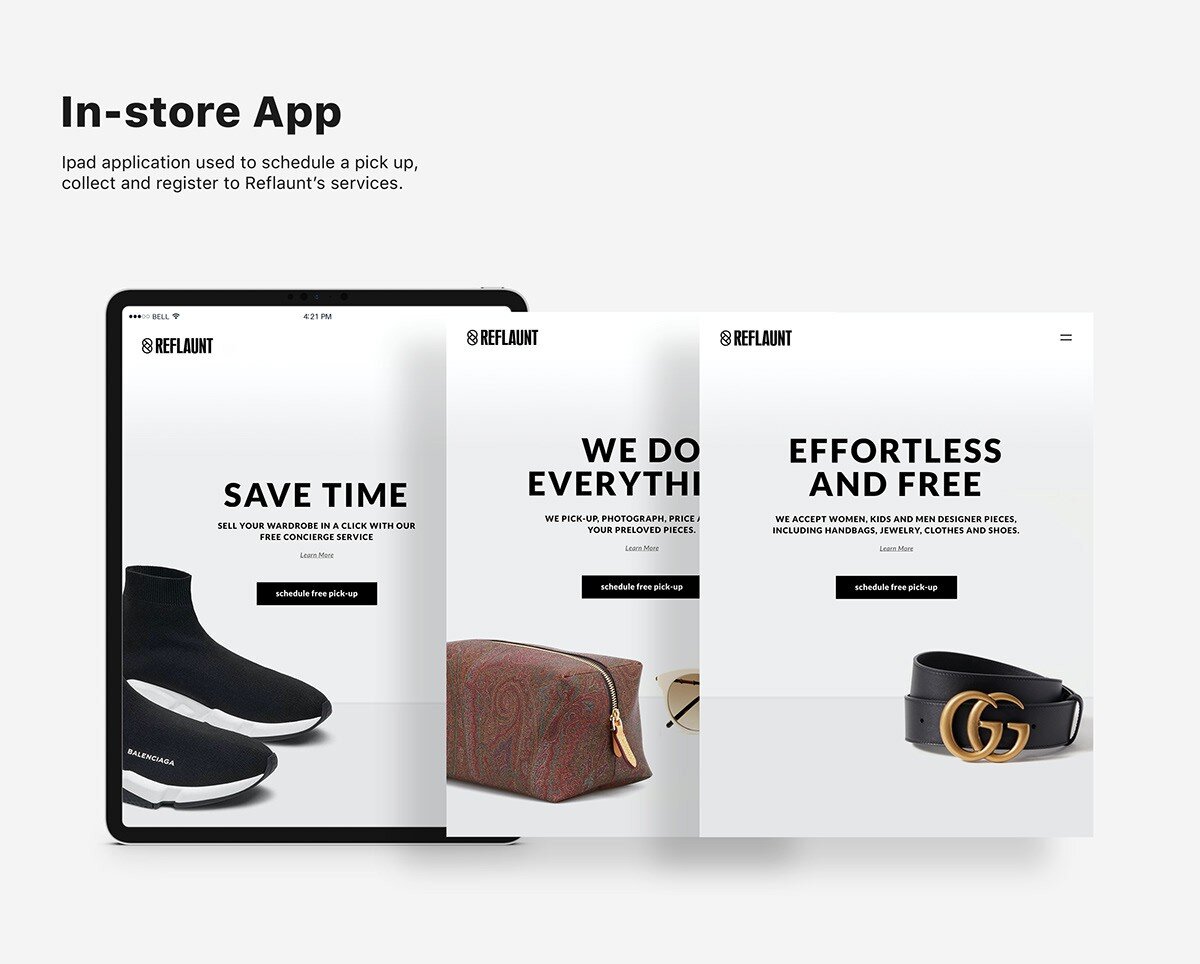Reflaunt’s technology is about to change the second-hand fashion game
Bringing fashion full circle with just one click, its software allows luxury brands to flaunt circular fashion
The up-and-coming sustainable fashion company, Reflaunt, has been slowly building behind the scenes. Reflaunt’s mission is to make the shopping and fashion experience circular, connecting retailers to the second-hand market with just one click. The Reflaunt software will be embedded into a retailer's site, allowing them to see and monitor the resale of their amazing pieces.
As the days of shopping in-person are slowly dwindling, unfortunately, the opportunity to stroll into vintage consignment shops and pick up luxury items are something of the past. With online shopping beginning to be the main domain of retail, online resale has gained traction as well. Companies like 'The Real Real' and 'Vestiaire' are seeing a spike in consumers, as more people are shopping less “fast-fashion” and more long-term pieces. The pandemic has also changed a lot of fashionistas' outlook on the clothing they wear each day, with many of us doing a full closet clean-out of all the work clothes we dreaded wearing. Life is too short for that. One person’s “trash” may be another person’s “treasure” though, which is where Reflaunt comes in. Being able to sell those luxe items straight from the retailer’s site takes away the middle man and makes the whole process seamless for all parties involved.
Not only does Reflaunt allow the seller to receive payment, but it also encourages consumers to spend their income on new pieces from the same luxury site. If you’re selling a piece that has stood the test of time, obviously the quality is great, so why not stick with the same brand and re-invest? Reflaunt’s integration allows sellers to resell/recycle their past purchases, and then directly shop for new pieces without ever having to leave the brand’s website.
Retailers are loving this because not only are they gaining new customers and income, they are also now in control of the entire life cycle of clothing. Designers no longer have to worry about where their silk blouses end up. In the back of someone’s closet? Lost under a pile of clothes at a consignment store? Not anymore. Now all the old and new pieces can be designed and featured on their site.
Reflaunt obviously benefits both the consumer and the retailer, but another important aspect is the sustainability opportunity that this new company is providing! Textiles consume a very large part of our landfills, but not only does it reduce waste. Less clothing needed to be produced means significantly less CO2 emissions and water usage long-term, transforming the textile industry from wasteful to resourceful.
As Reflaunt has silently been growing its brand, it has gained incredibly impressive partners. Global brands such as Balenciaga, ba&sh, COS, and Modes all see the significant impact that this embedded technology can serve on their website and within their companies. Reflaunt plans to announce several launches in 2021, and that is only the beginning.
Global CEO of ba&sh, Pierre-Arnaud Grenade, shares “The second-hand market is a major
environmental issue for our sector and it also represents an important opportunity, that of reaching new communities. ba&sh thus becomes the first brand in the world to integrate a resale solution supported by the blockchain. This innovation testifies to ba&sh's involvement in a global movement encouraging a more sustainable consumption model by making it easier to extend the life of products. We are happy and proud to integrate new responsible business models by partnering with disruptive start-ups like Reflaunt.”
Ready to sell your old purchases to make room for the new? Keep an eye out for Reflaunt through their website and get ready to begin shopping and selling smarter.




